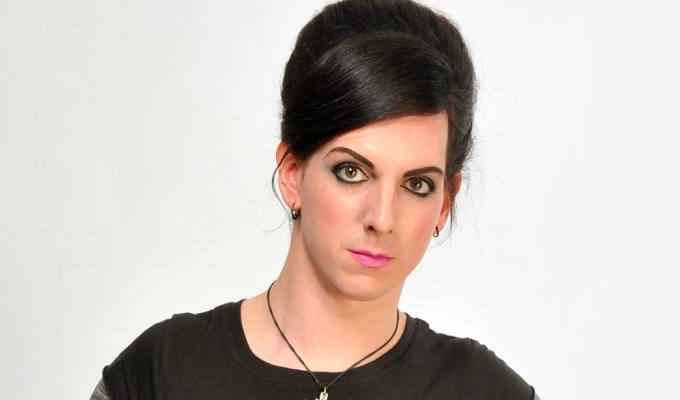Write good advice...
Expert advice on getting that sitcom off the ground
"I'm looking for people to bring us their worlds, rather than the worlds they think we want to see."This straightforward advice from comedy veteran Henry Normal captured the consensus of a diverse panel of experts who last night shared the benefit of their experiences with writers and would-be writers hoping to get their work on TV.
Or, to use the old comedy adage, write what you know.
And although this was a recurring theme, those taking part in the Anything For A Laugh event, organised by the Writers' Guild of Great Britain and chaired by Jo Brand, did not agree on everything.
Publicity for the discussion, held in the prestigious setting of Bafta's central London HQ, painted a bleak picture of comedy's future. "An air of desperation hangs over TV's corridors of mirth," it entoned. "Financial crisis, fixation on the youth market, obsession with star names and executive indecision, it's a wonder anything gets made."
But the panel of writers, performers and executives didn't think the picture was quite so black, citing recent hits such as The Office and Spaced as examples of how the genre is still alive and well.
"Sitcom has changed in the last two or three years," said the BBC's head of comedy Sophie Clarke Jevois. "It's less of a dirty word, more acceptable, popular even."
But how could your sitcom be the next big thing? Here are some of the tips the experts shared.
What they want
Distinctiveness is the key. Commissioning editors are looking for shows with their own feel, rather than derivatives of existing shows. It's here the 'write what you know' motto is paramount.
As Channel 4's head of entertainment, Danielle Lux, said: " The sense of the creative voice running through programmes is very important."
"I always ask 'How is this writing relevant? Ali G (right) was a voice you would all have heard, but hadn't seen on the screen. It was a writer-performer creating something culturally relevant."
And, in a bit of typically unhelpful executive double-speak, she added: "I'm also looking for a sense of newness. I am expecting you to have rigorously thought about whether it is new. But I don't want something that is so new that it doesn't mean anything to anyone."
Sanjeev Bhaskar, writer and performer with Goodness Gracious Me and The Kumars at Number 42, also urged would-be writers to create three-dimensional characters from real life, rather than stereotypes - especially when it comes to race.
"Don't be afraid of writing real people, rather than having a wet, liberal attitude," he said.
Normal, a long-time Steve Coogan collaborator and Mrs Merton writer, said: "The central relationship is the key thing, followed by the backdrop."
And - though it might seem like stating the obvious, he added: "You've got to have a few jokes in the first few pages. If you haven't had a laugh by page six, viewers will have turned off."
Or, as Jo Brand joked: "If you haven't had a laugh by page six, it's a drama."
What to send
Well, a script, obviously. The executives on the panel were more concerned about what should NOT be sent.
Too many writers overwhelm the decision-makers with reams of extraneous information. As Clarke Jevois said, her pet hate was "when the first ten pages are detailed descriptions of characters and synopsis".
She added: "I say, 'imagine the Radio Times billing'. Do one paragraph and then go straight into it. If you can't work out what the characters are from the writing, the script needs more work."
However there is one bit of information she's happy to have included - casting suggestions. "It can help us envisage the characters," she said.
As a producer, Bhaskar said he had received "some absolutely abysmal scripts".
"Two things that piss me off are an almost religious zeal to be wacky - because the novelty wears off really quickly - and tons of exposition. The characters should be defined by the humour."
However, Rhys Thomas, the creator of BBC Choice's Fun At The Funeral Parlour who has already clocked up six years experience in comedy despite being just 23, had little time for sending in scripts.
"Everyone's trying too hard," he said. "Just send in a treatment first."
That way, he reasoned, you wouldn't spend time writing a full show that executives weren't interested in.
He also had another alternative to the script. "Sending in video of your performance is sometimes a better way of sharing your raw energy," he suggested. "Had they seen my scripts they might not have got made."
Going it alone?
The main point of debate was whether you should write solo, in partnerships or big teams.
Fred Barron, the creator and writer of My Family, was a big fan of the team approach favoured by US sitcoms. As well he should, having been executive producer on the team-written Seinfeld and the Larry Sanders Show.
"The feedback you get when you are in a room with your peers - funny, smart people - feeds you," he said.
Normal, too, felt the input of other writers was welcome.rn"I find it much easier to write with other people," he said. "There were four writers on the first Mrs Merton - all trying to come up with a better line than the next."
But Thomas opined: "Writing in a team's not so good. You waste a lot of time arguing."
That's great. Now change it.
So you've taken all this advice, and work starts on your show. Well 'your' might be too strong a word.
"You have to accept that what you write on paper isn't going to end up on the screen," said Bhaskar. "The thing I've discovered is that any TV project is team-driven. Writers start with a certain preciousness, that's the first thing you have to give up. If a lighting guy has got a good gag, use it. It's all about the finished product."
And, he warned, once work on the show starts in earnest, your approach to the work may change.
"The fun that you had bandying about ideas is replaces by deadlines and structures," he said.
Barron agreed. "You had better enjoy that first draft - because things are only going to get worse."
But Thomas provided the optimistic voice of youth. "Have fun and enjoy yourselves," he said. "My first job was working as a runner with Reeves and Mortimer (right) and they would enjoy themselves. People take it too seriously."
Other advice
The obvious would be that if at first you don't succeed, try again.
Bhaskar said: "The Kumars got rejected a couple of times. But persistence paid off."rnBut he advised you shouldn't peddle one idea at the expense of everything else. "What's always driven me is knowing that I'm not a one-idea person," he said. "I always knew some would be good, some would be crap, some would get made and some wouldn't and some would get stolen," he added philosophically.
And Barron had a tip for those trying to get onto the writing teams of shows like his. "If you want to write for My Family, don't write a My Family script," he said. "Use Frasier or Fawlty Towers, or Porridge. If a producer sees a script as a potential episode of his show, they will see it an a completely different light.
Victoria Wood's Sketch Show Story starts on BBC1 on Sunday October 28.
First published: May 23, 2002
Published: 22 Mar 2009






